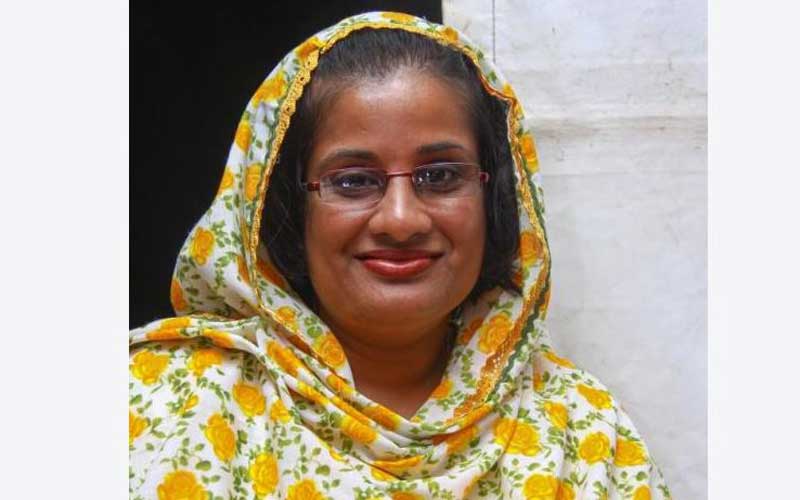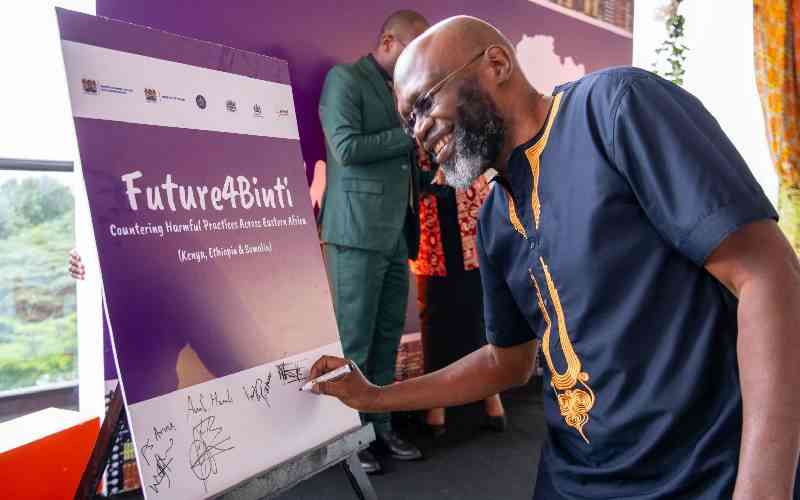
When Nafisa Khanbhai (pictured) was born 44 years ago at Aga Khan Hospital in Mombasa, she was diagnosed with spina bifida, a condition that saw her undergo a three-hour surgery immediately after birth.
“I was born with an opening in my spine just above my hips. The spine had protruded and ripped off the skin so one could see internal parts of my body.’’
Spina bifida is a congenital anomaly where the spine does not develop normally during the first weeks of pregnancy. This causes permanent damage to the spinal cord and nervous system, and can result in paralysis of the lower limbs or problems with bowel and bladder function.
Unfortunately, after the surgery, Nafisa lost any sense of feeling below her hips and any bowel control she previously had.
“My parents had been warned that this was a possibility,” she says.
Her lower body was put in a plaster cast after surgery for the next six months. At age two, her worried parents took her to London for reexamination where the doctors said that the initial surgery had been well done and there was nothing more they could do. After the cast were removed, she was strapped with metals on her lower body. She could only crawl, but not walk.
When she reached school-going age, she joined a school for the able-bodied;a decision that led to her facing discrimination from her peers who didn’t understand why she looked different. So traumatised she was by the bullying that young Nafisa decided not to join high school.
“I could only walk in calipers. My father or brother would take me to school and help me walk to class. While in school, I would sit in class the whole day and if I had to move around, I would do it by holding onto the walls I didn’t want to have to go through that again in another school.”
Also, no child wanted to sit next to her because she had no control of her bowel movement.
“Up to age nine, I wore diapers. Mum would come to school at 10 am and at lunch hour every day to change my diapers. I couldn’t do it herself. My problems got worse when at age 6, my menstrual flow began. This was down to my condition.”
Her struggles didn’t end here. When she was nine, her kidneys were infected and she had to undergo another surgery. This made her the first person in Kenya to wear a urostomy bag in 1985. A urostomy bag is a special bag used to collect urine after a bladder surgery. She still uses the urine bag to date, but she has since mastered passing of stool thanks to medication. Due to discontinuing her high school education, she opted to do short courses to master English and Home Science to help her manage house chores independently.
At age 18, Nafisa started working at a nearby school and taking on charity work to create awareness of challenges people living with disability faced. In the course of her cause, she started the Dear Diary Initiative Kenya based in Mombasa. The organisation advocates for people living with disability.
Nafisa has not allowed her condition to hold her back. In 2006, she wrote a play based on her life that was staged at Kenya National Theatre and received a lot of critical acclaim. She also takes care of 37 children she houses in an orphanage in Kaloleni.
“My life is beautiful. My life is amazing. In 2019, I won four awards and I have no regrets whatsoever as my disability has not stopped me from moving forward in life.”
She owes her success to her late father, her mother and two brothers who have been supportive pillars to her life.
“My greatest wish is that policies will be made that will ensure infrastructure is set up in a way that accommodates movement of the disabled.”
 The Standard Group Plc is a multi-media organization with investments in media
platforms spanning newspaper print
operations, television, radio broadcasting, digital and online services. The
Standard Group is recognized as a
leading multi-media house in Kenya with a key influence in matters of national
and international interest.
The Standard Group Plc is a multi-media organization with investments in media
platforms spanning newspaper print
operations, television, radio broadcasting, digital and online services. The
Standard Group is recognized as a
leading multi-media house in Kenya with a key influence in matters of national
and international interest.











